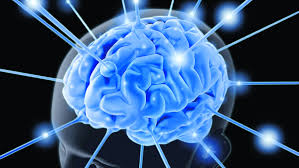
When we feel anxious, depressed or inadequate, a lot of us instinctively bottle it up, hoping no one notices. We feel we must be failing in some way and are embarrassed to share our feelings. Often a visit to a psychotherapist is made discreetly when we get to the point where we are exhausted physically or emotionally and can no longer cope with day-to-day life.
However, there is another way to look at therapy. Just as we understand that regular exercise is key to maintaining and strengthening our physical health so we can see regular therapy as a way to maintain and strengthen our mental and emotional health.
So, what’s stopping us? Often it’s the misconceptions about what therapy is for and what it involves. Here I take a look at some of those misconceptions and explore the benefits of regular therapy.
When did you first think about coming to therapy or counselling?
The chances are, it was when you realised something was not working out for you – you felt unhappy, lonely, unwanted, stressed, anxious, depressed or inadequate; you started relying on substances to feel better; you had a major break-up with a close person/people; you had problems with physical health; you found yourself stuck in your professional career; or you experienced other difficulties.
And it was more than likely that you were holding on and trying to “resolve” it all yourself, until you got to the point where you were feeling desperate. If so, you are not alone.
People often feel awkward about coming to see a psychotherapist or a counsellor. For many it feels like recognition of their “defeat” or “failure,” their inability to deal with life “like everybody else does.” Many feel ashamed as they believe that they have to be mentally unwell to consider therapy.
However, there are several misconceptions at play here.
First, therapy or counselling does not have to be the “last resort” when one faces unbearable problems or difficulties. It can instead be an exciting journey of self-exploration to help us change our already decent life into something even better. It can be treated as regular mental health “hygiene,” a bit like going to see your dentist regularly. You don’t have to do it but if you do, it helps you avoid major dental problems in the future. Similarly it is easier to keep in a good shape when you work-out regularly than to start when you already have high blood pressure and extra weight. So it is with psycotherapy.
Second, there is still a social stigma attached to mental health care. Even though one in every four adults in the UK experiences mental health problems at least once a year, it is seen as shameful. People do not like to share what is going on for them, which leads to more isolation and more suffering.
Somehow we tend to identify a condition with a person, it seems to define who we are – he is depressive, she is bipolar, he is a sex addict, etc. We reduce a whole person’s identity to their symptoms. In reality this is only one of many characteristics people have and often they are not prevalent and not permanent.
When we have a physical problem, say, with a knee-joint injury, we go to see a professional who can help us to use the joint again to live a fuller life. We are not ashamed of it, we turn to an expert and we often share how we feel with family and friends and get their support and care. Mental health difficulties can also happen to anyone and often need professional care. When we experience them we can also benefit from support of the people close to us and from being open about our feelings.
Third, living a typical life in Western culture will often stretch our adaptive capacities as a biological being. Many everyday experiences and practices are not easily compatible with our natural “design.” Busy demanding days in noisy crowded environments, processed food, sugar, caffeine, limited exercise routine, multiple social demands, lack of sleep, an overbearing amount of unfiltered information, multitasking, lack of support – all these and more naturally lead to psychological exhaustion. From this point of view, our mental health difficulties can often be seen as a natural and healthy reaction, much more than “pathology.” They can be interpreted as our mind “ringing an alarm.” Hearing this message in time and with sympathy may be vital for coping.
Human support, including professional support, is actually more in tune with our natural design than the self-reliance and self-sufficiency promoted by existing social institutions. As human beings, we are social creatures by nature and as such we thrive when supported by our group. Isolation and abandonment are so difficult to bear because, for our animal-self, they represent a threat to our survival.
So, if we consider therapy as a normal and necessary human need, and as a part of our regular health regime, we can overcome the stigma attached to it and give ourselves the mental tools and confidence to thrive no matter what life throws at us.
No Comments